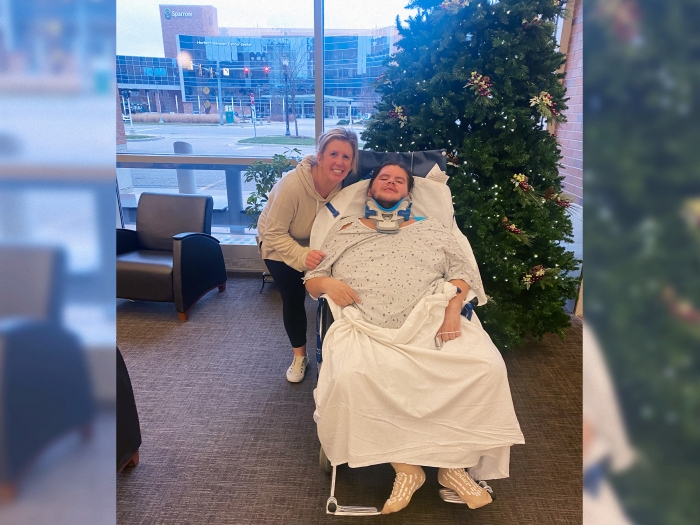Multidisciplinary group of U-M researchers will investigate environmental exposures, chosen as one of the first projects in a new NIH amyotrophic lateral sclerosis initiative.
Author |
Neurologists say it's time for a moonshot for their patients with ALS, the neurodegenerative disease that is always deadly, often in just a few years or less.
ALS, also known as Lou Gehrig's disease, hijacks people's ability to move, and ultimately, to breathe. Clinicians know there's some combination of genetic susceptibility and environmental factors, but they can't usually tell a patient what specifically sparked their disease. They can't slow it down, either.
Now, a $3.6 million project funded by the National Institutes of Health will allow a team of experts to intensely explore the intersection of environmental exposures, genetics, inflammation and other factors, in order to better determine what makes someone more likely to develop ALS.
Co-principal investigator Stuart Batterman, Ph.D., of the U-M School of Public Health, said a bold design is needed that pushes environmental exposures to the forefront—things like pesticides, metals, industrial chemicals, air pollution and other toxicants found in air, water, furnishings or food.
"There are so many potential environmental toxins that it would be extremely difficult to pinpoint which are important without a broad approach," said Batterman, U-M professor of environmental health sciences, global public health and civil and environmental engineering.
"We need to understand the mechanisms by which these exposures cause disease so that we can begin to develop treatments that are personalized to an individual's previous exposure," said co-principal investigator Stephen Goutman, M.D., M.S., associate professor of neurology and the director of the Pranger ALS Clinic.
"In addition, once we know more about the environmental mechanisms that cause ALS, there is real hope that we can prevent people from getting ALS in the future by reducing exposure to these triggers."
Goutman said a combination of new therapeutic targets and public health preventative strategies is the ultimate goal of the four-year project.
"Given that we are seeing more and more individuals with ALS every year, there is no better time than now to initiate these important investigations," said co-principal investigator Eva Feldman, M.D., Ph.D., the Russell N. DeJong Professor of Neurology, and director of the ALS Center of Excellence and NeuroNetwork for Emerging Therapies
Researchers will compare blood samples from 400 patients with ALS who have contributed to the U-M ALS Biorepository, housed in the Feldman laboratory, to a control group of 200 blood samples from research participants without ALS. The team will also analyze individual environmental exposures and polygenic risk scores to build new computer models for ALS risk and prediction.
"The time is ripe for undertaking this work, given the recent advances in sequencing and computational approaches to integrate large sets of heterogeneous multi omics data," said co-principal investigator Maureen Sartor, Ph.D., professor of computational medicine and bioinformatics and of biostatistics at the School of Public Health. "We believe this is a unique opportunity to really take the field in a new direction."
Feldman said "ALS is a devastating disease for our patients and for their loved ones. We need a better answer to the common question, 'Why did I get ALS?' Precision health will help us get there."
The project is one of four ALS initiatives recently funded by the National Institutes of Health to "dramatically advance the understanding of what triggers and drives the rapid progression of ALS" as part of the NIH Common Fund's High-Risk, High-Reward program. It's one of the NIH director's Transformative Research Awards.
"The science put forward by this cohort is exceptionally novel and creative and is sure to push at the boundaries of what is known," NIH Director Francis Collins, M.D., Ph.D., said about the program. "These visionary investigators come from a wide breadth of career stages and show that groundbreaking science can happen at any career level given the right opportunity."
Co-investigators, all from U-M, include Kelly Bakulski, assistant professor of epidemiology; Alla Karnovsky, associate professor of computational medicine and biology; Bhramar Mukherjee, professor of biostatistics, epidemiology and global public health; and Lili Zhao, associate professor of biostatistics.
This research will be conducted under grant number 1 R01 NS127188-01. The content is solely the responsibility of the authors and does not necessarily represent the official views of the National Institutes of Health.

Department of Communication at Michigan Medicine





